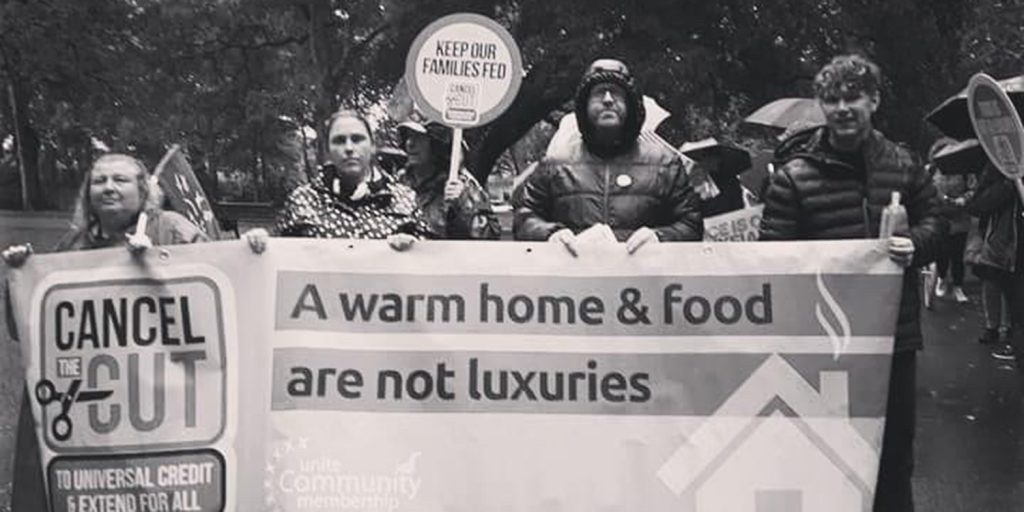Unicef recently crowned the Welsh capital the UK’s first child-friendly city. But as child poverty rates are on the up, some argue this label is unwarranted

Childhood is a time that people often remember fondly. From school trips and new adventures, to learning and playing freely, this period is crucial in developing who we are. However over 4 million children in the UK are living in poverty, unable to access the privileges that make for a safe and memorable childhood.
Children’s charity Action for Children says poverty is a lack of money that leaves families struggling to afford essentials and enjoy a decent standard of living. In Wales, this is the reality for 28% of children, with Cardiff’s figures among some of the highest in the country. Despite this, the Welsh capital has just been named the UK’s first child-friendly city by Unicef.
But how can Cardiff be a child-friendly city when so many of its children are still living in poverty?
How poverty impacts Cardiff’s children
In Cardiff, over 21,000 children are living in poverty. Adam Johannes, founder of campaign group Cardiff People’s Assembly, calls these statistics damning. He said: “The high rates of child poverty that grip our community suffocate the hopes of future generations. How can we claim to be a child-friendly city when our children are forced to endure these hardships?”
Poverty often holds a child back from unlocking their full potential
– Alastair Love, media officer at Action for Children
These hardships can manifest themselves in different ways. For example, children’s rights charity Save the Children recounts how the struggles of poverty impacted Catherine, a single mother of two from Cardiff. When Catherine’s fridge freezer broke, it left “a huge impact” on her family. She would usually control her budget by shopping for food fortnightly on a prepaid store card, but when left without suitable storage methods she had to buy produce “every couple of days.” Not only did her living costs skyrocket during this time, but she was also unable to store important medicine for her daughters. This had a huge impact on Catherine’s family and reflects the harsh reality of what a third of children in Cardiff are facing today.
A child-friendly city?
Unicef’s child-friendly city status recognises Cardiff’s progress in advancing the human rights of children. In comparison to other cities in the UK, Cardiff has paved the way in ensuring that children are at the forefront of policies. It has achieved this through a number of initiatives, such as the introduction of the Youth Council and Youth Health Board, giving children an opportunity to influence decision-making in the city. Cardiff has also taken steps to give children a sense of belonging through festivals, story trails and exclusively youth-led media.
These factors were named in Unicef’s report as reasons for recognising Cardiff as a child-friendly city. However, the report also notes room for improvement, stating that some of these initiatives aren’t accessible for all of Cardiff’s children, such as those in poverty. Alastair Love, media officer at Action for Children, said: “Poverty often holds a child back from unlocking their full potential.” This is clearly the case in Cardiff, as some children are missing out on opportunities designed for them.
With this disparity in mind, Johannes questioned how the city has been able to achieve this status. He said: “The impact of child poverty is far reaching and long lasting. In a city that boasts progress and prosperity, it is a travesty that we find ourselves in this situation. How can we claim to be a child-friendly city?”

A step in the right direction
Tackling child poverty is one of the council’s main aims, said Jeremy Rhys, head of communications at Cardiff Council. This is set out in the council’s plan to deliver a “stronger, fairer, greener” Cardiff by 2026. There are many pledges made in this plan, with the council promising to invest in schools, deliver 4,000 new homes, and reassert Cardiff’s position as a leading cultural destination.
Perhaps most importantly though, this plan aims to support people out of poverty. The council will create a financial advice programme to help people navigate the cost of living crisis, and they are working with third sector organisations such as Cardiff Food Bank to help those worse off. They are also hoping to reduce homelessness in the city by making prevention support more accessible and providing a dedicated caseworker to all.
It was also recently announced that all Welsh primary school children will have access to free school meals by 2024, potentially saving families over £500 per year. “Free school meals are a powerful weapon,” said Johannes, “they lift up the health of Welsh people while increasing thousands of people’s disposable income.”
Is Cardiff a child-friendly city? Here’s what the founder of Cardiff People’s Assembly thinks
Initiatives such as these are a step in the right direction to ensure that Cardiff is a safe place for all children. But, this is not the first time that the council has made these promises. In 2015, Cardiff Council pledged to eradicate child poverty by 2020. It promised to reduce the number of children living in workless households and reduce the inequalities that some families face. However, the council failed to achieve this goal. Three years later, the people of Cardiff find themselves in a worse situation.
The failure to meet this target and Cardiff’s prevalent child poverty issue is at odds with the city’s new child-friendly status. For many, this contrast is proof that 27.7% of Cardiff’s children are being overlooked. Some children in Cardiff have the privilege of living a happy and fulfilling childhood, while others are left with empty promises and neglected by those meant to protect them.

HOW DOES POVERTY IMPACT CHILDREN?
Family Life: Parents might work several jobs to make ends meet. The pressure of financial problems can cause frustration and lead to family arguments.
Food: Children might miss out on some food groups because they’re more expensive. Some families will have to rely on food banks.
Education: Due to costs, children might miss school trips. They may not be able to afford the correct uniform, which results in punishments.
Mental Health: Children often pick up on their parents worries and develop their own anxieties. If children miss opportunities, they can begin to feel lonely.
All information from Action for Children
